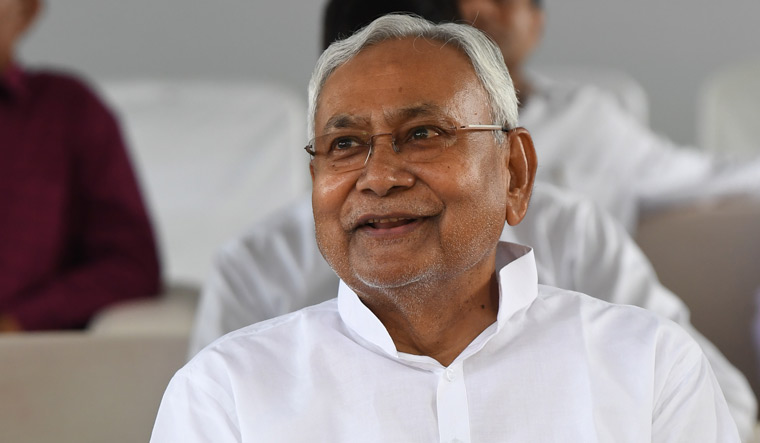In the bustling political landscape of Delhi, a significant meeting of the JD(U) National Council was convened under the leadership of Chief Minister Nitish Kumar on December 29. This gathering marked a pivotal moment as Nitish Kumar was appointed as the National President of JD(U). The meeting also witnessed a major announcement regarding the upcoming 2024 Lok Sabha elections, nominating Devesh Chandra Thakur as the candidate from the Sitamarhi seat.
Rising Opposition within JD(U) and RJD
Following this announcement, ripples of opposition began to emerge within the ranks of both JD(U) and RJD. Key figures, including current JD(U) MLCs and former legislators, alongside several RJD leaders, have started voicing their dissent. A critical meeting was held on January 5th at a hotel in Patna, specifically focusing on Devesh Chandra Thakur’s candidacy. During this meeting, Rameshwar Mahato, a member of the Bihar Legislative Council from JD(U), expressed a clear stance, indicating that a mere announcement does not guarantee acceptance of a candidate.
The Controversy Surrounding Devesh Chandra Thakur
The contention surrounding Thakur’s candidacy intensified when comments he previously made came to light. He had referred to certain individuals in Patna as “crows,” a statement that many believe warrants an apology. Both Mahato and an ex-RJD female legislator emphasized the need for official party endorsement before considering anyone a legitimate candidate.
Implications of the Recent Meeting
The meeting held on that Friday sent a clear message, challenging the authority of the universally accepted leader, Nitish Kumar. It raised questions about the potential impact of this dissent on the party’s future actions and strategies. Furthermore, it stirred speculations about possible significant actions the party might undertake against those opposing the leadership.
The Road Ahead for JD(U) and RJD
This situation has put the spotlight on the internal dynamics of JD(U) and RJD, highlighting the complexities of political alliances and leadership decisions. The unfolding events will likely have a considerable influence on the parties’ strategies and actions in the upcoming elections. The way these parties navigate through these internal conflicts and align their strategies with the evolving political scenario will be crucial in determining their standing in the 2024 Lok Sabha elections.
the political scenario in Delhi, particularly within JD(U) and RJD, is undergoing a significant transformation. The appointment of Nitish Kumar as the National President of JD(U) and the nomination of Devesh Chandra Thakur have sparked a series of debates and opposition within the party ranks. The outcome of these internal conflicts and the subsequent decisions made by the leadership will be instrumental in shaping the future political landscape of the region. As the 2024 Lok Sabha elections approach, all eyes will be on how these developments unfold, impacting the political dynamics and alliances in Delhi.
Disclaimer : इस न्यूज़ पोर्टल को बेहतर बनाने में सहायता करें और किसी खबर या अंश मे कोई गलती हो या सूचना / तथ्य में कोई कमी हो अथवा कोई कॉपीराइट आपत्ति हो तो वह [email protected] पर सूचित करें। साथ ही साथ पूरी जानकारी तथ्य के साथ दें। जिससे आलेख को सही किया जा सके या हटाया जा सके ।





